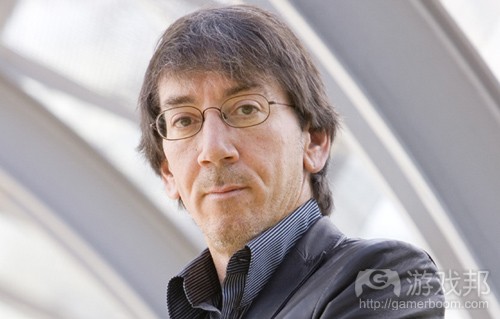盘点10大游戏开发者对行业的杰出贡献
作者:Nadia Oxford
自行设计社交游戏是个值得称赞的功绩,因为这着实不是件容易的事情。游戏设计师必须具有电影导演般的眼光,而且必须思考所看到现象的内涵,为游戏赋予富有吸引力的互动体验。
今天我们要盘点那些显著推动游戏行业发展的十名开发者,排名不分先后。他们是:
Will Wright:他是Maxis的联合创始人,也是极度流行的《模拟人生》系列游戏的设计师。小学生仍在通过《模拟城市》学习城市规划的基础知识(游戏邦注:比如不可将住宅放置在核电站旁),然后通过《模拟人生》学习如何规划自己的生活。从根本上说,Will Wright的作品显示,游戏可以具有令人不可思议的深度。Wright已经不在Maxis或EA任职,但是他的《模拟人生》系列游戏仍取得了新的成效:2011年8月《Sims Social》在Facebook上发布,迅速吸引了大量的用户。
Hideo Kojima:Kojima设计、编写和制作游戏。他目前成立了自己的制作公司Kojima Productions。他有着光鲜的从业史。Kojima因制作《合金装备》系列游戏(游戏邦注:他还编写了游戏中富有深度的故事)而闻名北美,尤其是1998年PlayStation平台力作《合金装备》。但是,在北美地区之外,他很早就凭借《Snatcher》和《宇宙骑警》等电影PC游戏确立了自己在导演和故事编写行业的地位。
Gabe Newell:Newell最耀眼的功绩是成立Valve,由此催生出最令人着迷的现代视频游戏。但是,Newell的另一个著名项目Steam的重要性似乎完全不亚于《传送门》、《军团要塞2》和《半条命》等游戏,Steam构建起在线游戏销售体系。而且,Newell具有某种特殊的才华,对所有游戏他从未推出第3代产品,因而能够保持粉丝对其的钦佩。
Brenda Brathwaite:Brathwaite进行游戏开发已经超过30年时间,涉足过游戏设计和关卡设计。她为《Wizardry》系列角色扮演游戏编写过剧本,这些游戏对《勇者斗恶龙》和《最终幻想》等游戏的设计都有所影响。Brathwaite还对社交游戏题材做出重大贡献,她和John Romero联合开发了流行社交游戏《Ravenwood Fair》。
John Romero:Romero是id Software的联合创始人,这家工作室的作品有《毁灭战士》、《雷神之锤》和《Wolfenstein 3D》。这些都是流行的第一人称射击题材游戏,而且仍然有着大量的粉丝。
Richard “Lord British” Garriot:Garriot的《Ultima》系列为西方RPG题材的产生奠定了基础,《Ultima Online》推动了大型多人在线RPG游戏子题材的流行。Lord British在游戏行业中创下了如此多的第一,那么他成为历史上第一个进入太空的游戏开发者也并不令人意外。
Dona Bailey:Bailey制作的《蜈蚣》仍是史上最受玩家认可的街机游戏,也是首个使用人工智能的游戏。当时,Bailey是行业中数量稀少的女性游戏开发者之一。有趣的是,《蜈蚣》迅速吸引了大量女性粉丝的青睐。
Gunpei Yokoi:Yokoi的不幸离世发生在互联网进入日常家庭生活之前,但他作为游戏设计师和硬件工程师的传奇功绩仍值得颂扬。Yokoi对游戏行业的贡献在于改变了我们玩游戏的方法,他认识到上下班途中的人或许会愿意用游戏来打发在地铁中的漫长时间,他发明了任天堂的Game + Watch System和Game Boy,制作了《Kid Icarus》和《Metroid》。
Alexey Pajitnov:Pajitnov开发了《俄罗斯方块》,这是有史以来最流行的解谜游戏。所有人都对《俄罗斯方块》很熟悉,从刚刚开始学玩游戏的小孩到推着购物车在超市中购物的老年人。Pajitnov目前继续从事解谜游戏的开发,令人欣喜的是,在于政府交涉长达11年后,他从1996年起终于可以收取《俄罗斯方块》的版税。
Shigeru Miyamoto:要说具有影响力的游戏设计师,就不得不提Shigeru Miyamoto。游戏社区曾经就Miyamoto是否应获此殊荣展开激辩,但应当注意到,正是他的游戏(游戏邦注:包括《Wii Fit》、《Wii Sports》和《Nintendogs》)推动了Wii的销量迅猛发展。
即便你不同意Miyamoto对现代游戏行业做出了突出贡献,他之前所获得的成就也不应当被轻视或否认,比如《超级马里奥》、《大金刚》和《塞尔达传说》等。
游戏邦注:本文发稿于2012年2月1日,所涉时间、事件和数据均以此为准。(本文为游戏邦/gamerboom.com编译,拒绝任何不保留版权的转载,如需转载请联系:游戏邦)
Top 10 Game Developers
Nadia Oxford
Designing your own video game is a commendable feat in itself, as it’s certainly no easy task. A game designer must command the vision of a movie director, and then he or she must think in a dimension beyond sight in order to make the game a compelling, interactive experience.
We here at Game Theory tip our hats to every developer who’s hard at work on the next great game, whether it’s an indie project being birthed in a garage, or the next multimillion title from EA. That said, we’d like to take a moment to single out ten developers whom we feel have been especially important to the advancement of gaming in general. In no particular order:
Will Wright — The co-founder of Maxis is also the designer of the immensely popular Sims franchise. Schoolkids still learn the basics of urban planning through the SimCity games (don’t put houses next to nuclear power plants), and then graduate to the basics of playing God through the Sims titles. Basically, Will Wright’s work demonstrated that games of incredible depth can be stuffed into floppy discs and game cartridges. Wright isn’t with Maxis or EA anymore, but his Sims franchise continues to find success: when The Sims Social launched on Facebook in August of 2011, it immediately found a large and eager audience.
Hideo Kojima — Kojima designs, writes, and produces games. He’s currently the head of his own production company, Kojima Productions. Pretty impressive stuff, but then again, he has a pretty impressive Resume. Kojima is best known in North America for his work on the Metal Gear series (including a heck of a lot of in-depth story writing), specifically 1998’s Metal Gear Solid for the PlayStation. Outside of North America, however, he had established himself as a director and a storyteller some years beforehand with cinematic PC games like Snatcher and Policenauts.
Gabe Newell — Newell is notable for founding Valve, which, in turn, gave birth to some of the most ingenious video games the modern era has to offer. But as important (and awesome) as Portal, Team Fortress 2, and Half-Life may be, Newell’s other notable project, Steam, has helped shape online game distribution and sell it as a viable form of retail. Also, Newell has a special talent for aggravating fans by simply avoiding all use of the number 3.
Brenda Brathwaite — Brathwaite has put in over three decades of much-appreciated service into game development, including game design, level design, and scripting for the Wizardry series of role-playing games – which would subsequently influence franchises like DragonQuest and Final Fantasy. Brathwaite has also made big contributions to the social game genre with Ravenwood Fair, a hit social game that she developed alongside John Romero.
John Romero — And speak of the devil, we tip our hat to the man who first took us to hell. Romero is the co-founder of id Software, the studio behind Doom, Quake, and Wolfenstein 3D. These works all popularized the first-person shooter genre, which still has a couple of fans hanging around.
Richard “Lord British” Garriot — Garriot’s Ultima series include some of the most important entries into the Western RPG genre, and Ultima Online helped give rise to the popular massively multiplayer online RPG sub-genre. Given that Lord British graced us with so many firsts, it makes sense that he’d enter history as the first game developer to go up into space. Cool!
Dona Bailey — Bailey worked on Centipede, which is still one of the most recognizable arcade games of all time, and one of the first games to utilize artificial intelligence (a little widget that still pops up in video games from time to time). Bailey was one of a very small number of female game developers working in the industry at that time. Interestingly, Centipede quickly attracted a large female fanbase.
Gunpei Yokoi — Yokoi’s unfortunate death occurred before the internet got a foothold as a household staple, thus his legacy as a game designer and a hardware engineer is still undersung. Yokoi’s contributions to gaming irrevocably altered the way we play, as it was Yokoi who determined that commuters would probably love to fiddle with games during long, boring train rides. He invented Nintendo’s Game + Watch System, as well as the Game Boy, and produced Kid Icarus and Metroid. Bonus fact: Yokoi also invented those little robo-extendo arms that let you grab stuff from a distance (namely, your beer–if you’ve had some practice).
Alexey Pajitnov — Pajitnov developed Tetris, which is far and away the most popular puzzle game of all time. Everyone is familiar with Tetris, from the kid who started gaming yesterday to the little old lady pushing her grocery cart in the supermarket. Pajitnov continues to develop puzzle games today – and, happily, he began making royalties from Tetris in 1996 after 11 years of having to do without as a result of working for the Soviet government.
Shigeru Miyamoto — It wouldn’t be right to talk about influential game designers without mentioning Shigeru Miyamoto. There’s been some debate in game communities over whether or not Miyamoto still “has it,” but seeing as how his games (including Wii Fit, Wii Sports, and Nintendogs) helped push Wii sales to astronomical levels, we’re content to say that this ever-smiling developer still has it.
Even if you don’t agree that Miyamoto contributes anything imaginative to the modern game industry, his previous accomplishments–Super Mario, Donkey Kong, The Legend of Zelda, among others–should never be downplayed or denied. (Source: Game Theory)








































 闽公网安备35020302001549号
闽公网安备35020302001549号